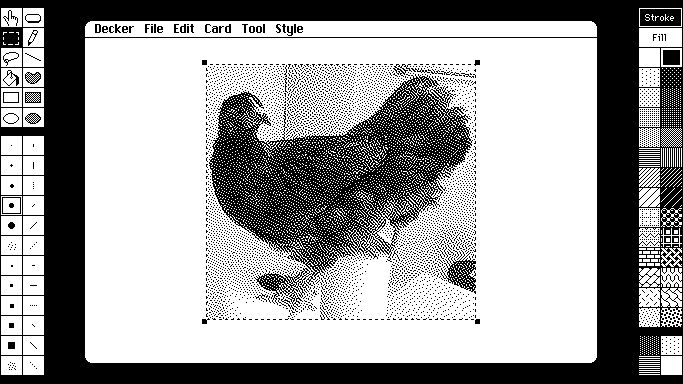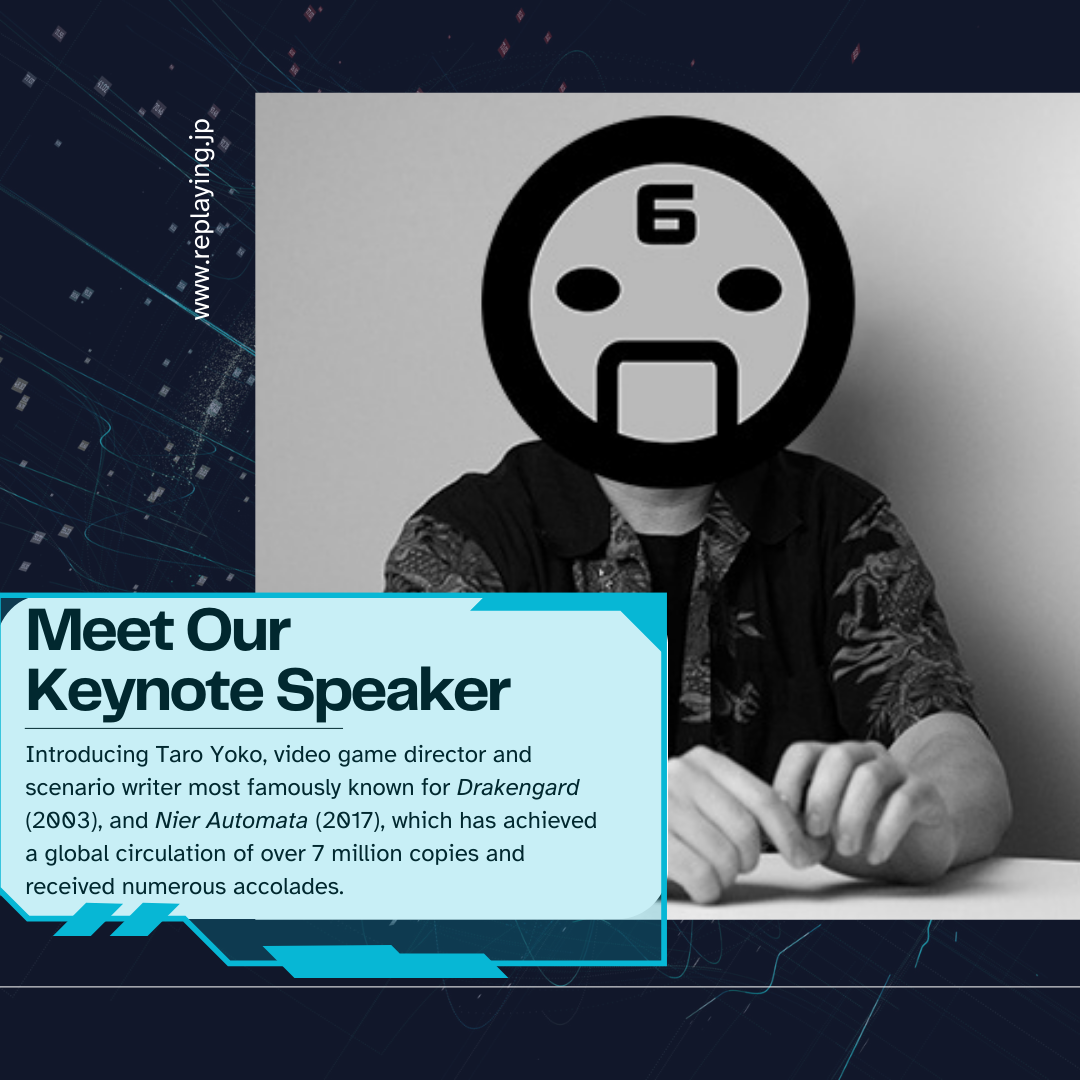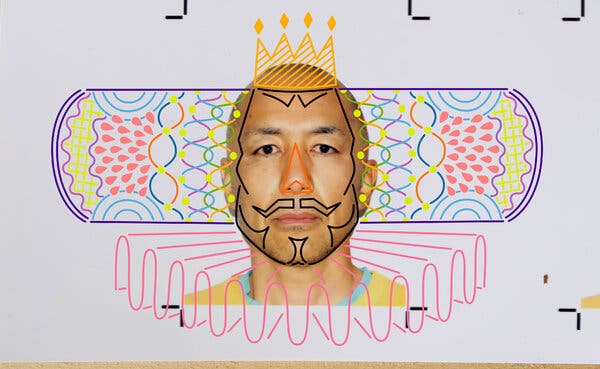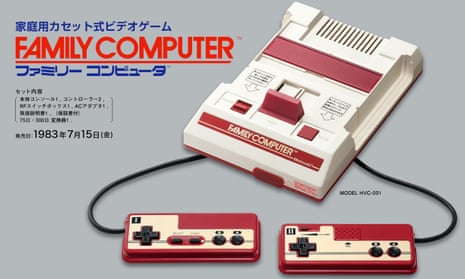Isabel Pedersen is giving the Stéfan Sinclair lecture at Concordia on Create Me, Break Me, Remember Me: Art and AI in the Age of Reinvention. Among other things she talked about the project Fabric of Digital Life which documents over 5000 augmentation projects/tools/platforms. This is a fascinating database.
Category: Computer Games
The Gamergate Social Network: Interpreting Transphobia and Alt-Right Hate Online
Catherine Bevan led the writing of a paper that just got published in Digital Studies, The Gamergate Social Network: Interpreting Transphobia and Alt-Right Hate Online. The paper explores transphobia in the gamergate controversy through a social network analysis. Catherine did a lot of work hand tagging events and then visualizing them.
Can A.I. Be Blamed for a Teen’s Suicide?
The New York Times has a story about youth who committed suicide after extended interactions with a character on Character.ai. The story, Can A.I. Be Blamed for a Teen’s Suicide? describes how Sewell Setzer III has long discussions with a character called Daenerys Targaryen from the Game of Thrones series. He became isolated and got attached to Daenerys. He eventually shot himself and now his mother is suing Character.ai.
Here is an example of what he wrote in his journal,
I like staying in my room so much because I start to detach from this ‘reality,’ and I also feel more at peace, more connected with Dany and much more in love with her, and just happier.
The suit claims that Character.ai’s product was untested, dangerous and defective. It remains to be seen if these types of suits will succeed. In the meantime we need to be careful with these social AIs.
Replaying Japan 2024
I just got back from Replaying Japan 2024 which was at the University at Buffalo, SUNY. Taro Yoko was one of the keynotes and he was quite interesting on developing games like Nier Automata that are partly about AI in this age of AI. I was a coauthor of two papers:
- A paper on “Parachuting over the Angel: Nintendo in Mexico” presented by Victor Fernandez. This paper looked at the development of a newsletter and then magazine about Nintendo in Mexico that then spread around Spanish South America.
-
A second paper on “The Slogan Game: Missions, Visions and Values in Japanese Game Companies” presented by Keiji Amano. This paper built on work documented in this Spyral notebook, Japanese Game Company Slogans, Missions, Visions, and Values. We gathered various promotional statements of Japanese game companies and analyzed them.
The conference was one of the best Replaying Japan conferences thanks to Mimi Okabe’s hard work. There were lots of participants, including virtual ones, and great papers.
Decker – A HyperCard for the Web

I’m at the CSDH-SCHN conference which is in Montreal. We have relocated to U de Montreal from McGill where Congress is taking place. Jason Boyd gave a paper about the Centre for Digital Humanities at TMU that he directs. He mentioned an authoring environment called Decker that recreates a deck/card based environment similar to what HyperCard was like.
Decker can be used to create visual novels, interactive texts, hypertexts, educational apps, and small games. It has a programming language related to Lua. It has simple graphics tools.
Decker looks really neat and seems to work within a browser as a HTML page. This mean that you can Save As a page and get the development environment locally. All the code and data in a page that can be forked or passed around.
As a lover of HyperCard I am thrilled to see something that replicates its spirit!
Who wants to farm potatoes in the metaverse? Exploring Roblox’s corporate hell-worlds
Everyone from Samsung to Victoria’s Secret is getting in on Roblox. We hunted down the very worst branded experiences in the all-ages game platform (and an unofficial Ryanair world)
Rich Pelley of the Guardian has a nice article about the worst corporate games in Roblox, Who wants to farm potatoes in the metaverse? Exploring Roblox’s corporate hell-worlds. Canada’s McCain’s Farms of the Future, for example, explains regenerative farming of potatoes. You can see McCain’s Regen Fries site here.
This use of a virtual gaming platform for advertising reminds me of the way Second Life was used by companies to build virtual advertising real estate. Once a space becomes popoular the advertisers follow.
Call for papers 2024 – Replaying Japan
Replaying Japan 2024 – The 12th International Japan Game Studies Conference – [Conference Theme] Preservation, Innovation and New Directions in Japanese Game Studies [Dates] Monday, August 19 (University at Buffalo, SUNY) Tuesday, August 20 (University at Buffalo, SUNY) Wednesday, August 21 (The Strong National Museum of Play) [Locations] University at Buffalo, SUNY (North Campus) and … Continue reading “Call for papers 2024”
The Call for Papers for Replaying Japan 2024 has just gone out. The theme is Preservation, Innovation and New Directions in Japanese Game Studies.
The conference which is being organized by Tsugumi (Mimi) Okabe at the University of Buffalo is also going to have one day at the Strong National Museum of Play in Rochester which has a fabulous collection of Japanese video game artefacts.
The conference could be considered an example of regional game studies, but Japan is hardly at the periphery of the games industry even if it is under represented in game studies as a field. It might be more accurate to describe the conference and community that has gathered around it as a inter-regional conference where people bring very different perspectives on game studies to international discussion of Japanese game culture.
Replaying Japan 2023
Replaying Japan 2023 – The 11th International Japan Game Studies Conference – Conference Theme – Local Communities, Digital Communities and Video Games in Japan
I’m back in Canada after Replaying Japan 2023 in Nagoya Japan. I kept conference notes here for those interested. The book of abstracts is here and the programme is here. Next year will be in August at the University of Buffalo and the Strong Museum in Rochester. Some points of interest:
- Nökkvi Jarl Bjarnason gave a talk on the emergence of national and regional game studies. What does it mean to study game culture in a country or region? How is locality appealed to in game media or games or other aspects of game culture?
- Felania Liu presented on game preservation in China and the challenges her team faces including issues around the legitimacy of game studies.
- Hirokazu Hamamura gave the final keynote on the evolution of game media starting with magazines and then shifting to the web.
- I presented a paper co-written with Miki Okabe and Keiji Amano. We started with the demographic challenges faced by Japan as its population shrinks. We then looked at what Japanese Game Companies are doing to attract and support women and families. There is a work ethics that puts men and women in a bind where they are expected to work such long hours that there really isn’t any time left for “work-life balance.”
The conference was held in person at Nagoya Zokei University and brilliantly organized by Keiji Amano and Jean-Marc Pelletier. We limited online interventions to short lightning talks so there was good attendance.
He Created the Katamari Games, but They’re Rolling On Without Him – The New York Times
The New York Times has a nice story about Keita Takahashi. He Created the Katamari Games, but They’re Rolling On Without Him. Like many Japanese game designers he gets no royalties and has little say in the future of the game associated with him, Katamari Damacy.
The game itself is collection game where you roll a ever growing ball of things that you might see in a typical Japanese house. The balls will allow a prince to rebuild the stars accidentally destroyed by his father, King of All Cosmos. (The image above is of Takahashi as the King.) Rachael Hutchinson has a chapter in her book Japanese Culture Through Videogames about the game and Japan.
Takahashi has a new game coming out soon, to a T.
40 years of the Nintendo Famicom – the console that changed the games industry
Entering a crowded field, the Nintendo Famicom came to dominate the market in the 1980s, leaving a family orientated legacy that continues to be felt today
The Guardian has a good story on the 40th anniversary of the Nintendo Famicom, 40 years of the Nintendo Famicom – the console that changed the games industry The story quotes James Newman and also mentions Masayuki Uemura who Newman and I knew through the Replaying Japan conferences. Alas, Uemura, who was at Ritsumeikan after he retired from Nintendo, passed in 2021.
The story points out how Nintendo deliberately promoted the Famicom as a family machine that could be hooked up to the family TV (hence “Fami – com.) In various ways they wanted to legitimize gaming as a family experience. By contrast, when Nintendo brought the machine to North America it was remodelled to look like a VCR and called the Nintendo Entertainment System.



